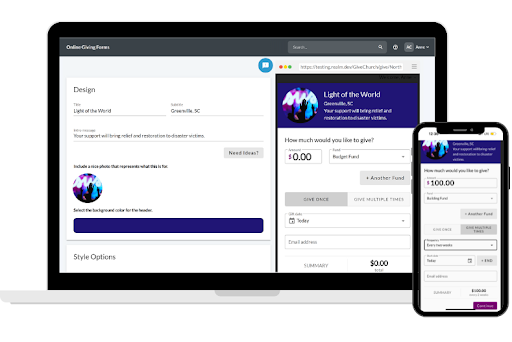Understanding the Importance of Volunteer Screening
Volunteering is the backbone of many churches, enabling them to carry out various activities and initiatives. However, ensuring the safety and well-being of everyone involved should be a top priority. This is where volunteer screening becomes crucial. In this article, we’ll delve into why every church should prioritize volunteer screening and its benefits.
The Significance of Volunteer Screening in Church Settings
Ensuring Safety and Security
Volunteer screening helps to create a safe and secure environment for all members of the church community, including children, vulnerable adults, and other volunteers. By thoroughly vetting potential volunteers, churches can identify individuals with a history of criminal behavior or misconduct, thus minimizing the risk of harm.
Protecting Vulnerable Populations
Many churches provide services and programs specifically designed for vulnerable populations, such as children’s ministries, youth groups, and outreach programs for the elderly or disadvantaged. Volunteer screening helps to safeguard these vulnerable individuals from potential harm or exploitation.
Methods of Volunteer Screening
Criminal Background Checks
One of the most common methods of volunteer screening is conducting criminal background checks on potential volunteers. This process involves searching databases for past criminal convictions or records of misconduct that may disqualify an individual from volunteering.
Reference Checks
Reference checks involve contacting individuals who can provide insights into the character and suitability of the volunteer candidate. This may include previous employers, teachers, or community leaders who can attest to the individual’s reliability and trustworthiness.
Benefits of Volunteer Screening for Churches
Building Trust and Confidence
Implementing thorough volunteer screening procedures demonstrates a commitment to the safety and well-being of the church community. This helps to build trust and confidence among members, encouraging greater participation and engagement in church activities.
Legal Compliance
In many jurisdictions, churches are legally obligated to ensure the safety of individuals participating in their programs and activities, particularly minors. By prioritizing volunteer screening, churches can demonstrate compliance with relevant laws and regulations, reducing the risk of legal liability.
Challenges and Considerations
Balancing Privacy and Security
While volunteer screening is essential for ensuring safety, churches must also balance the need for security with respect for individuals’ privacy rights. It’s crucial to establish clear policies and procedures for handling sensitive information and conducting screenings in a fair and transparent manner.
Resource Constraints
For smaller churches with limited resources, implementing comprehensive volunteer screening procedures can be challenging. However, there are often cost-effective solutions available, such as partnering with third-party organizations or utilizing volunteer screening tools and software.
Conclusion: Prioritizing Safety and Well-being
In conclusion, volunteer screening is a critical component of maintaining a safe and secure environment within churches. By thoroughly vetting potential volunteers and implementing appropriate screening procedures, churches can protect vulnerable populations, build trust among members, and ensure compliance with legal obligations. Prioritizing volunteer screening is not only a moral imperative but also essential for the long-term health and viability of the church community.
FAQs
1. How often should volunteer screenings be conducted?
Volunteer screenings should ideally be conducted on all new volunteers and periodically for existing volunteers, depending on the nature of their involvement and the church’s policies.
2. What information is typically included in a criminal background check?
A criminal background check may include information on past convictions, arrests, pending charges, and other relevant criminal records.
3. Are there any legal requirements for volunteer screening?
Legal requirements for volunteer screening vary by jurisdiction, but many states have laws mandating background checks for individuals working with vulnerable populations, such as children or the elderly.
4. Can volunteers with criminal records ever be allowed to participate?
Depending on the nature of the offense and the church’s policies, individuals with past criminal records may still be considered for volunteering, especially if they have demonstrated rehabilitation and remorse.
5. How can churches ensure the confidentiality of volunteer screening information?
Churches should establish strict protocols for handling sensitive information, including who has access to screening results and how they are stored and disposed of securely.
ACS Technologies
ACS Technologies sets a new standard in church technology, offering a holistic suite of solutions that streamline administrative tasks and empower your staff to excel in their roles and your church to excel in your community.
In the ever-evolving landscape of church engagement and management, ACS Technologies rises above the rest. Our comprehensive church solutions, bespoke digital offerings, streamlined communication tools, comprehensive ministry consulting, and training make us the trusted choice for over fifty thousand churches. Experience the ACS Technologies advantage and elevate your church’s online presence, connectivity, and generosity today. Join us in redefining church technology for the digital age, where your ministry’s success becomes our shared mission.




